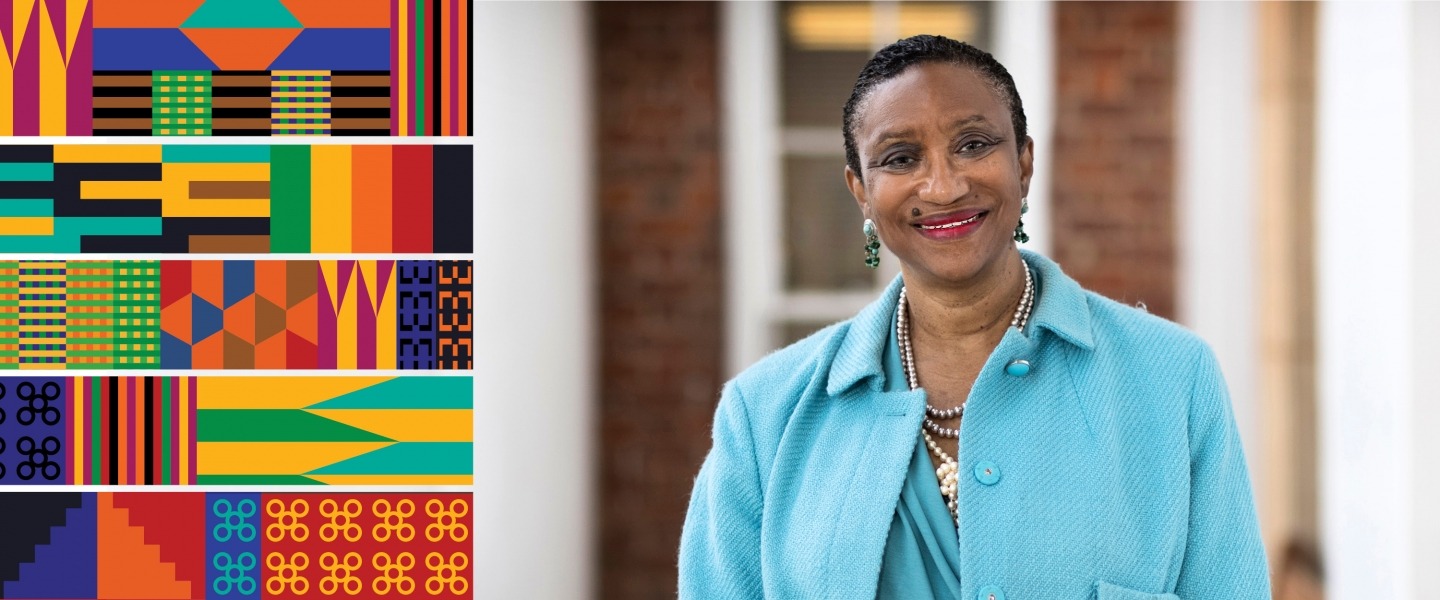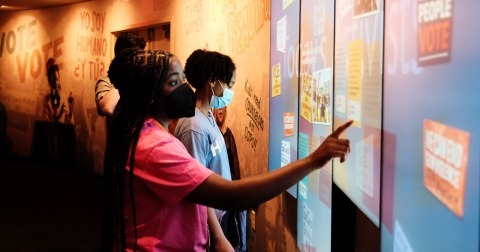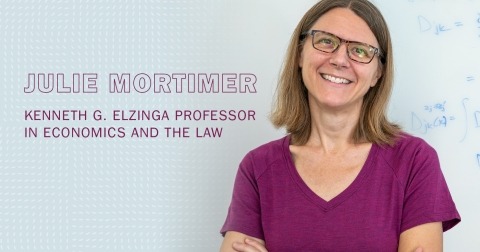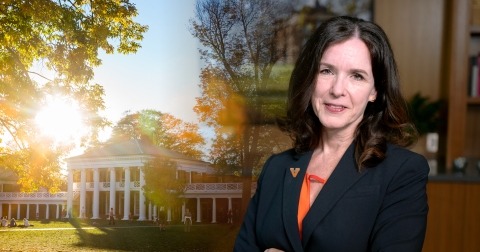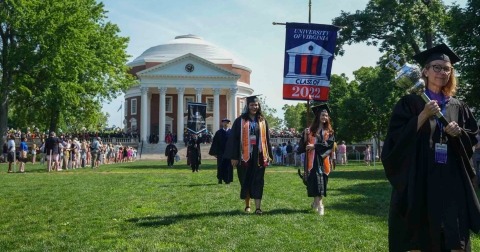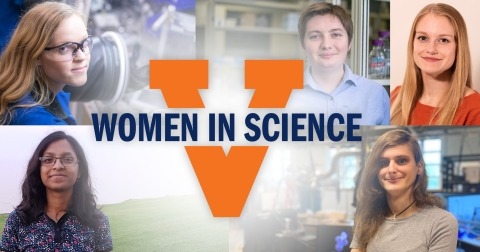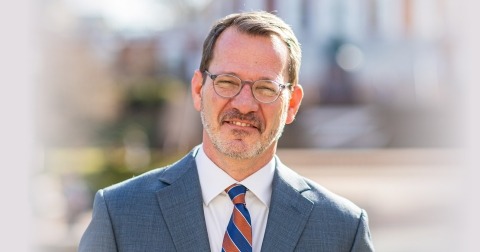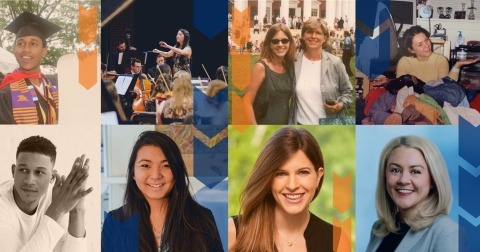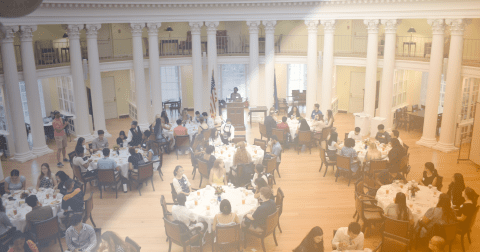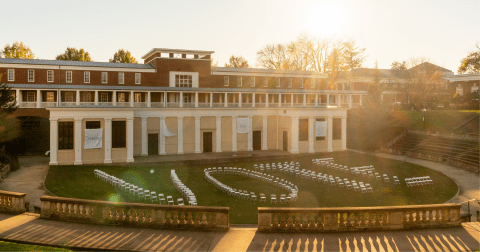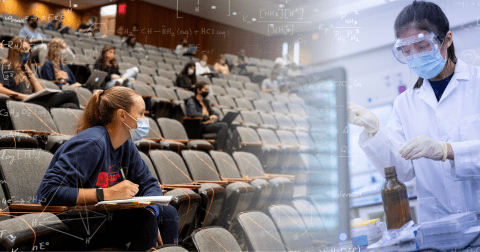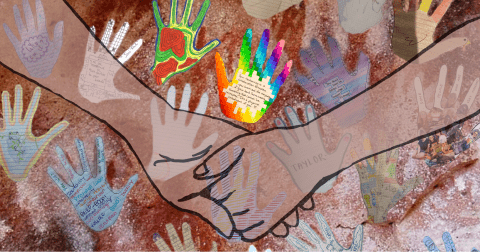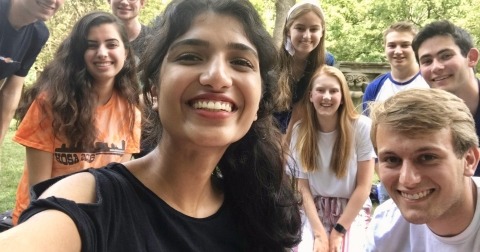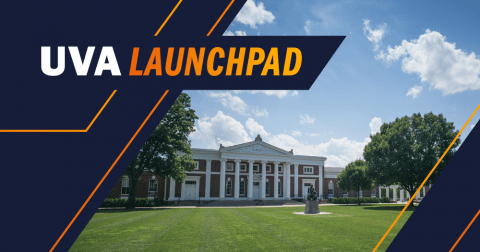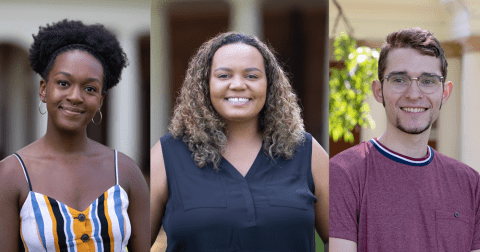Woodson Fellows Bring International Prestige to Arts & Sciences
BY RUSS BAHORSKY
In 1981, University of Virginia history professor Armstead Robinson set out to create a home for African American studies in the College and Graduate School of Arts & Sciences and to establish a research center that would make important contributions to scholarship and education. On the eve of its 40th anniversary, the Carter G. Woodson Institute for African-American and African Studies has far exceeded Robinson’s expectations.
Today, “the Woodson,” as it’s affectionately called by its faculty and students, administers the University’s undergraduate degree in African-American and African Studies and sponsors a variety of conferences, symposia and public outreach projects, including the Citizen Justice Initiative, which pairs students from Charlottesville-area high schools with UVA undergraduates on research projects focused on public history. But the success of its residential fellowship program for pre- and post-doctoral scholars is how the Woodson Institute has earned international acclaim as a magnet for some the world’s best graduate students in the humanities and social sciences, incorporating the breadth of the College and Graduate School of Arts & Sciences to create a collaborative and supportive interdisciplinary environment for innovative work.
Since its creation four decades ago, the highly competitive fellowship program has built a reputation for launching the careers of scholars at the leading edge of their disciplines. Former fellows include award-winning authors and scholars. Princeton professor Tera Hunter used the fellowship to complete the research for her book, To ’Joy My Freedom: Southern Black Women’s Lives and Labors after the Civil War, which won the H. L. Mitchell Award from the Southern Historical Association, the Letitia Brown Memorial Book Prize from the Association of Black Women’s Historians and the 1997 Book of the Year Award from the International Labor History Association. Also included in the Woodson Institute’s roster of notable alumni are fellow-turned-associate professor Talitha LeFlouria, who has won numerous awards for her book Chained in Silence: Black Women and Convict Labor in the New South, and Boston University professor, noted anthropologist and former Marshall Scholar Parker Shipton.
To find the best scholars in the field, the program sets a very high bar for its applicants, says Deborah McDowell, director of The Woodson Institute. The ideal fellow, she explains, is “the person who is not thinking in conventional ways. The person who is thinking about matters about which others have thought but thinking about them in novel ways, thinking about them in innovative ways, thinking about them in unusual ways.”
But what makes the Woodson Fellows program unique is not only the scholars it selects but what it offers them when they arrive on Grounds.
INTERDISCIPLINARY INNOVATION
The Woodson Institute’s primary objective has been to interpret the African and African American experience from a global perspective. From the start, its leaders recognized the importance of an interdisciplinary and collaborative approach to research and scholarship that was innovative in 1981 and is now central to the broader, new Arts and Sciences curriculum approved last fall by the College’s faculty (see page 17).
The fellowships provide scholars time to complete their research and to write before they jump into the responsibilities of teaching full time; at the same time, the Woodson Fellows are immersed in a community of scholars who bring the perspectives of their various disciplines to bear on challenging each other’s work and making it the best it can be.
“The fellowship helped me by giving me time to write but also by giving me a community in which to write,” says Ashleigh Wade, a professor at Penn State and former fellow, who used her time at the Woodson Institute to complete her dissertation on how young black girls are becoming social media innovators. “Writing is such an isolating task, and that can be discouraging at times, but when you have a community of people to exchange ideas with…that really made a difference.”
Jermaine Scott, a current post-doctoral fellow who is exploring the intersection between sports and politics for black athletes, praised the vibrant intellectual atmosphere cultivated by a strong community of fellows.
“It’s a driving force,” Scott says. “The community of fellows is an incredibly strong asset for the Woodson.”
WORLDWIDE LEADERSHIP OPENS DOORS
Another unique and appealing part of the program is the extensive support offered to its fellows as they begin their careers. With a 94 percent placement rate, the Woodson Institute plays an active role in helping its fellows find teaching positions at prestigious colleges and universities across the country. Former fellows have secured tenure-track positions at the Massachusetts Institute of Technology, UC Berkeley, UCLA, Carleton College, Hamilton College and even at UVA, where several have joined the Woodson Institute’s impressive faculty.
According to Ian Baucom, UVA’s Buckner W. Clay Dean of Arts & Sciences, Woodson fellows represent “a community of thought that is changing not only what takes place here [at UVA] but what is taking place at scores of universities to shape our thinking about race, about African-American history and culture.”
“The Carter Woodson Institute is a jewel,” Baucom adds. “It is without a question one of the defining places to conduct research and pursue scholarship in African and African American studies in the nation and the world.”
McDowell says, “If you want to find out where scholarship is going in African American and African Diaspora scholarship, across the disciplines, find out who is at the Woodson Institute.”
Woodson alumna Dionne Bailey turned down the offer of a full-time teaching position when she got her fellowship offer. Before completing the fellowship, she accepted an even better offer, from Colgate University, one of the top liberal arts colleges in the country.
“It’s because of Woodson,” she says. “In every interview I had, everyone wanted to talk about the Woodson. You just have to say you’re a Woodson Fellow, and it opens doors.”
SHAPING THE FUTURE
Dean Baucom sees the Woodson Institute not only as a prestigious center for exploring how race has shaped the world we live in today and how it’s shaping the world of tomorrow but also as an important component of broader interdisciplinary studies of democracy at UVA.
“We have defined for ourselves a question that drives everything we do: What does democracy need from us?” asks Baucom. “And there’s no question that to understand the hope of democratic life is to think deeply about questions of race.
“The University of Virginia is the place in the world where those questions are researched and advanced. Its work propels the careers of its fellows, it brings richness to the academic pursuits of our students and it elevates the international reputation of the University,” Baucom explains. “The Woodson is something we are immensely proud of, and advancing its work will continue to be a top priority for me as dean.”
CURRENT WOODSON FELLOWS AND THEIR WORK
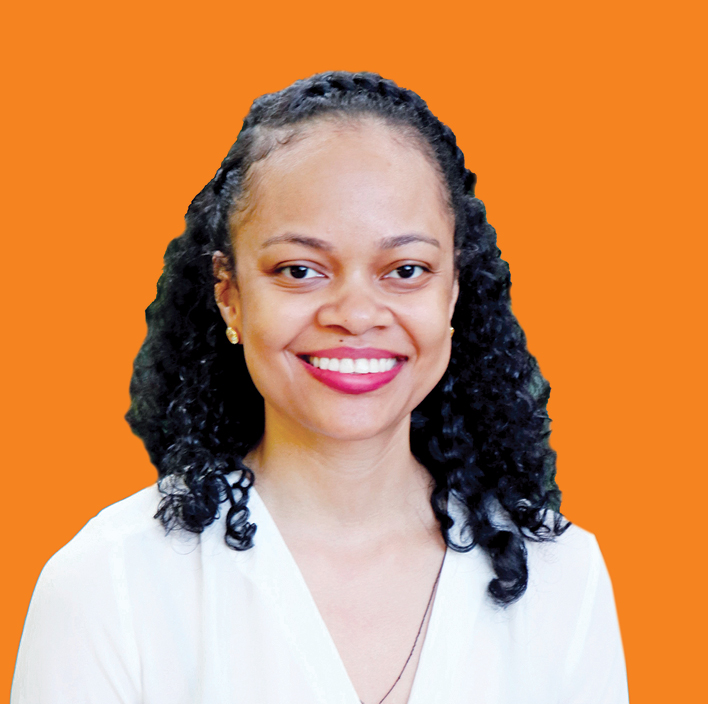
Angelica Allen
Pre-Doctoral Fellow (African and African Diaspora Studies), is documenting the experience of the Black Amerasian community in the Philippines.
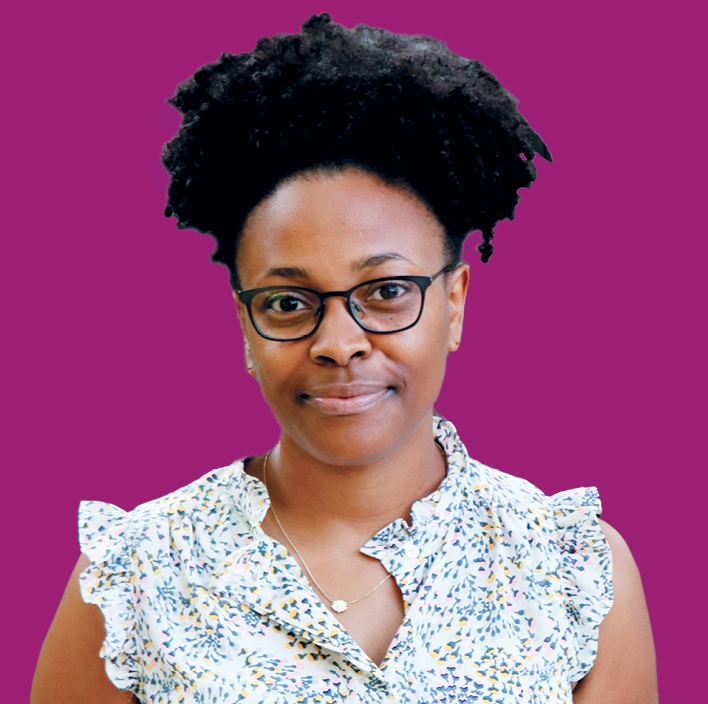
Dana Cypress
Pre-Doctoral Fellow (English), studies the lasting impact of Hurricane Katrina on African American literature and culture.
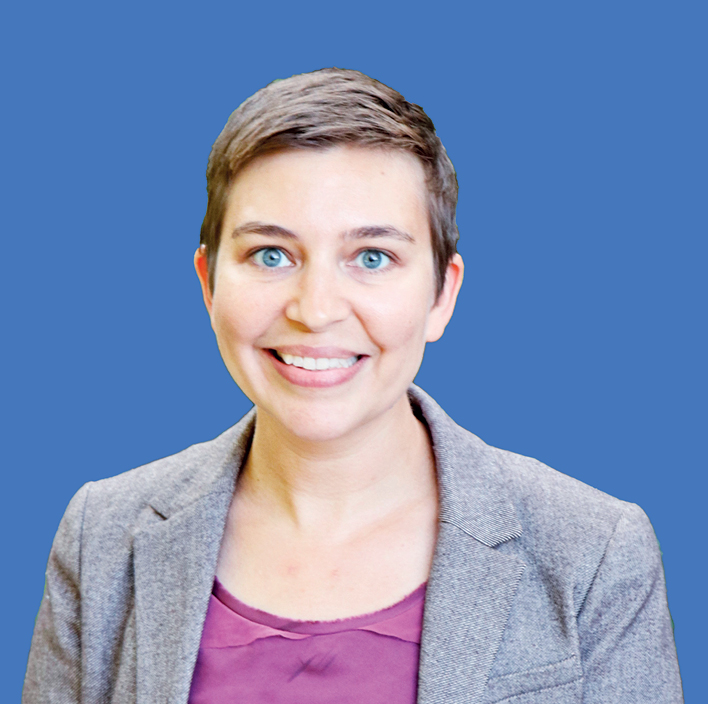
Amanda Gibson
Pre-Doctoral Fellow (History), studies the origins of racial inequities in the U.S. financial markets.
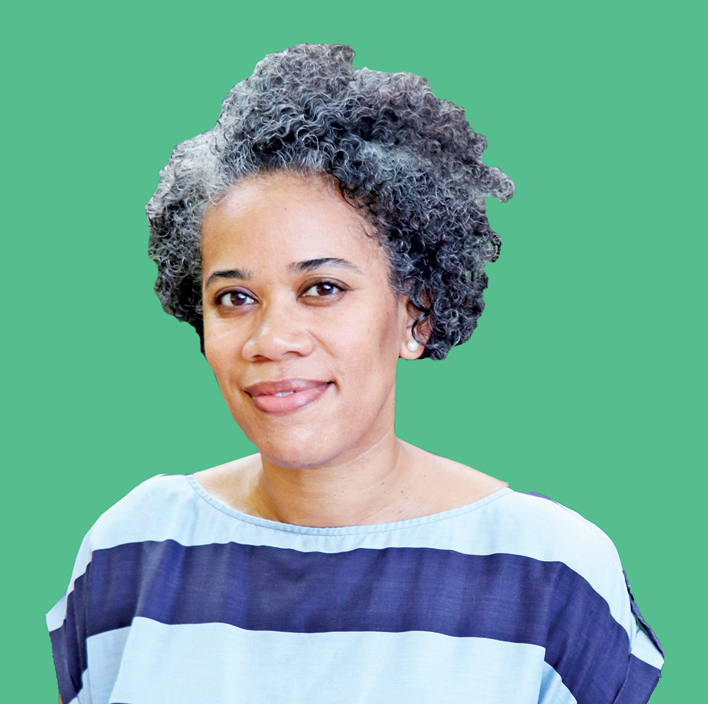
Nzingha Kendall
Post-Doctoral Fellow (American Studies), explores how experimental filmmaking allows black women opportunities for personal freedom of expression.
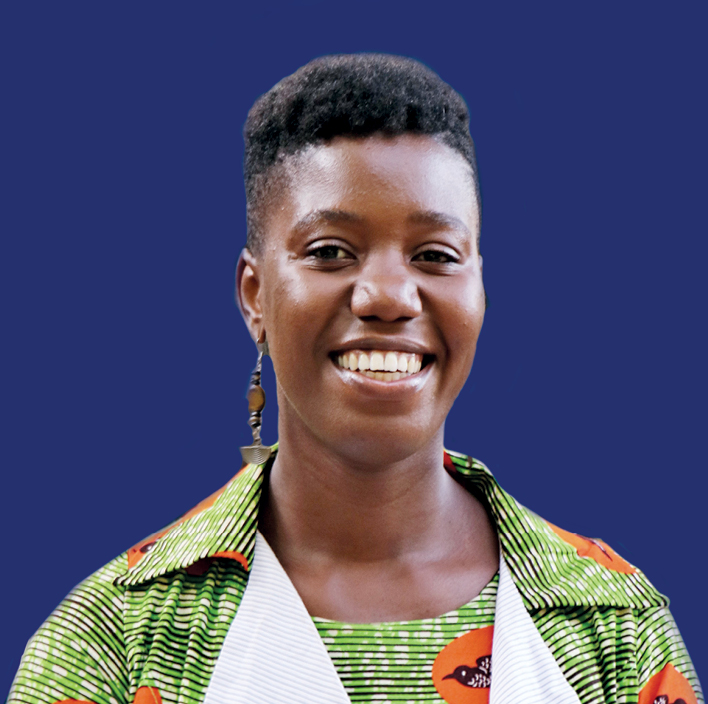
F. Delali Kumavie
Pre-Doctoral Fellow (English), explores the metaphor of air travel in the contemporary literary works of African and diasporic authors.
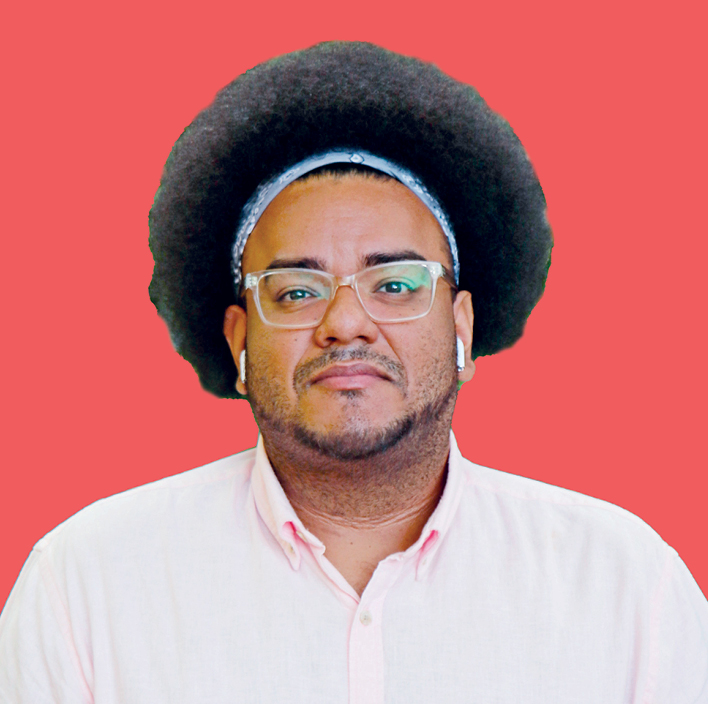
Paul Joseph López Oro
Pre-Doctoral Fellow (African and African Diaspora Studies), examines how gender and sexuality are shaping New York City's Garífuna community.
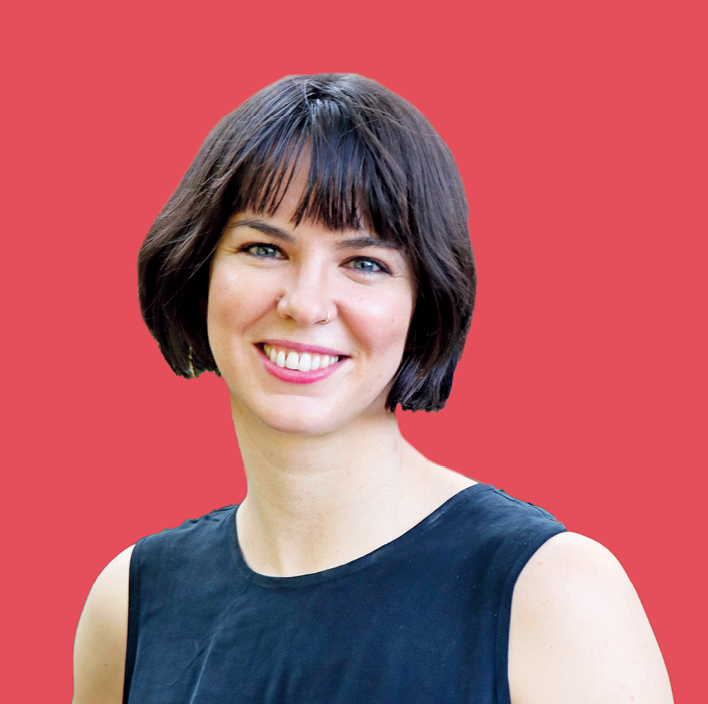
Claire Antone Payton
Post-Doctoral Fellow (History), examines the politics of dictatorship in Haiti (1957-1986).
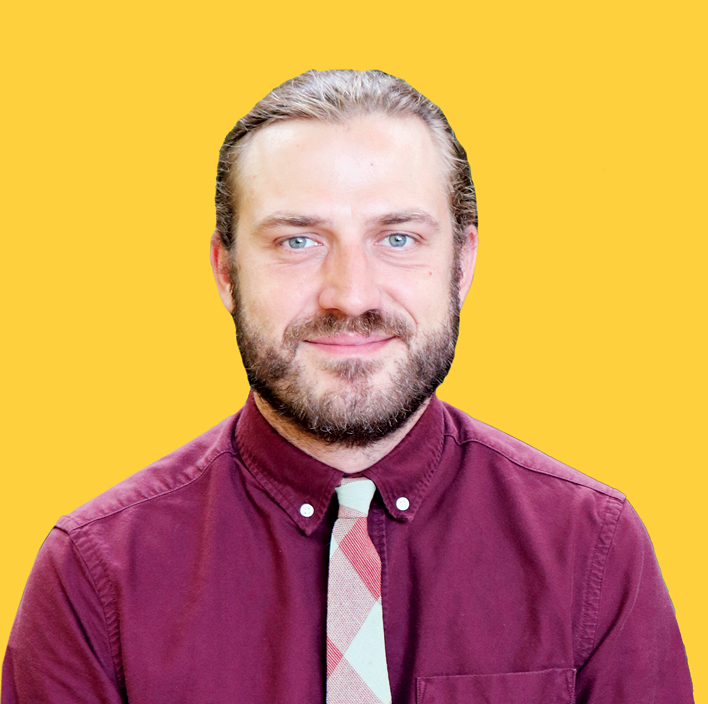
Sean Reid
Pre-Doctoral Fellow (Anthropology), specializes in African archaeology and the maritime archaeology of coastal Ghana.
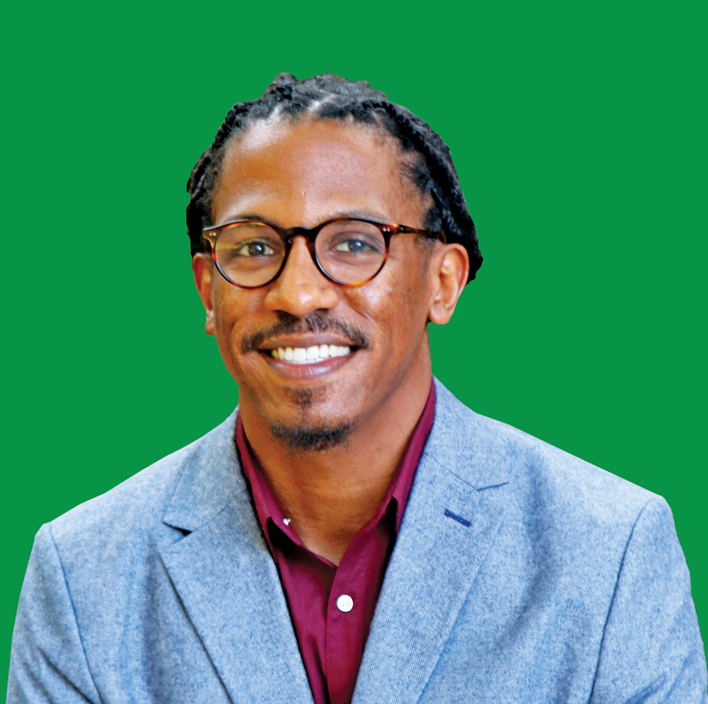
Jermaine Scott
Post-Doctoral Fellow (African American Studies), examines how black soccer players across the African diaspora use soccer as a site of black politics and solidarity.
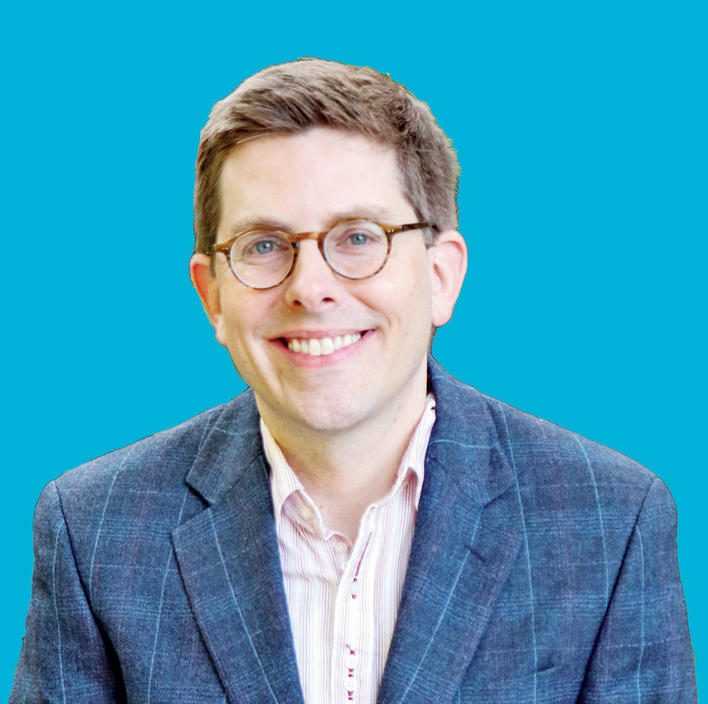
Brian Smithson
Post-Doctoral Fellow (Cultural Anthropology), studies video filmmaking as religious practice in Bénin.
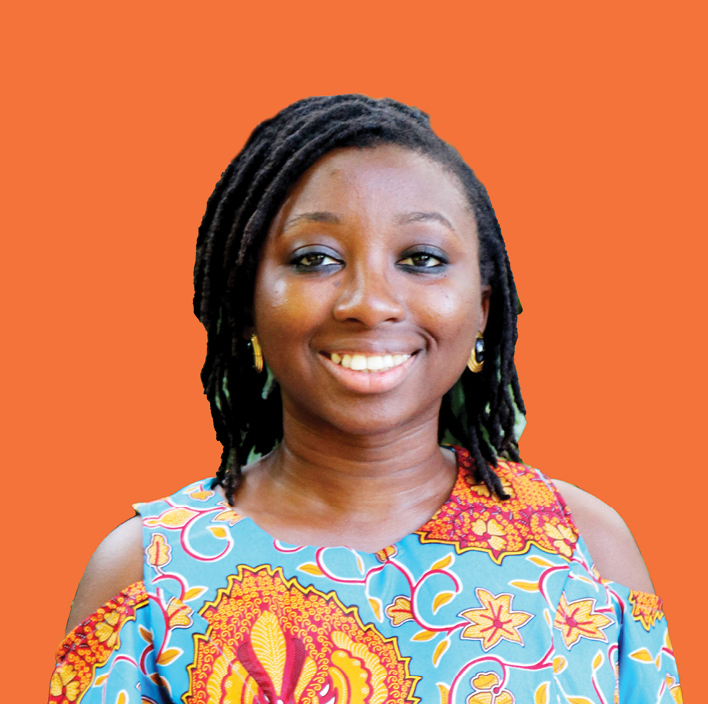
Halimat Somotan
Pre-Doctoral Fellow (African History), researches the social and urban history of Africa.
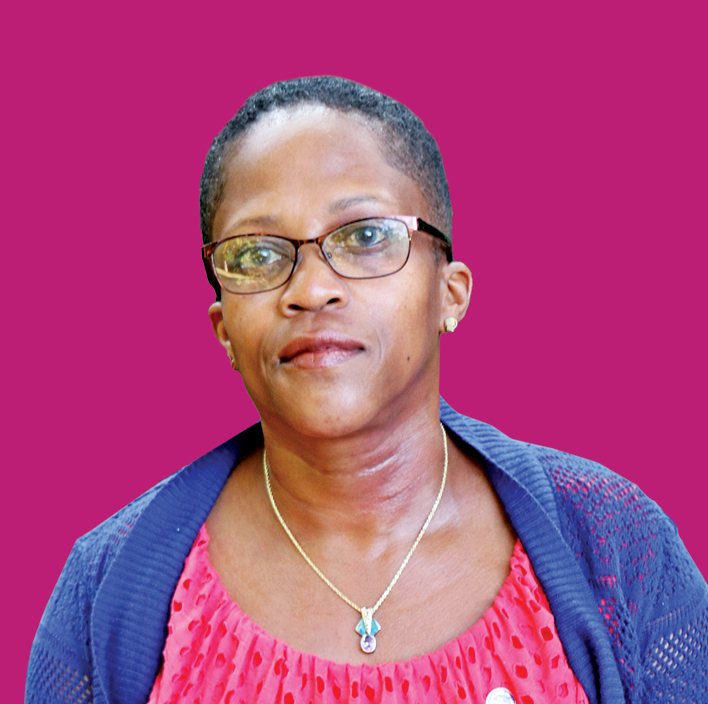
Tracey Stewart
Pre-Doctoral Fellow (Music), examines the social and political importance of music in Jamaica’s Maroon communities.
FORMER WOODSON FELLOWS ON THE UVA FACULTY
Tony Perry (2016-18) researches the material ecology of slavery in antebellum Maryland.
Talitha LeFlouria (2014-16) studies mass incarceration, modern slavery, race and medicine, and black women in America.
Kwame E. Otu (2014-16) focuses on race in post-colonial Africa, including issues of sexual citizenship, gender, nongovernmental organizations dedicated to human rights, and neoliberal racial formations in postcolonial Africa.
H. Timothy Lovelace* (2010-12) specializes in American legal history, constitutional law, and race and the law.
*Visiting Professor

